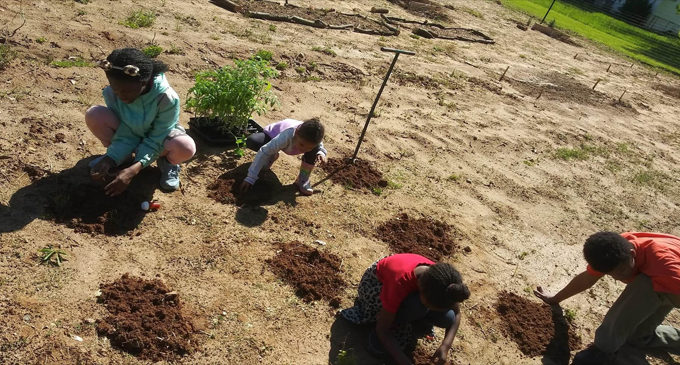As pandemic clears, CSEM-supported groups weigh lessons

By John Railey
They dug in and worked all the harder, seeing the inequities they had long battled aggravated by COVID-19. Now, as the pandemic lifts, two nonprofit groups are weighing what they learned as they plot their futures.
The groups, Island CultureZ and the Royal Curtain Drama Guild, are both supported by Winston-Salem State University’s Center for the Study of Economic Mobility (CSEM). The groups align with CSEM’s goal, that of removing the barriers to upward economic mobility, concentrating on East Winston. Island CultureZ works to improve access and availability to healthy food, and Royal Curtain works on economic development through its plays.
“The pandemic didn’t stop us,” said Stephanie Hurt, the founding artistic director and board executive of Royal Curtain. “It actually opened doors for us to get out there and start engaging even more with the community.”
Michael Banner, the Island CultureZ director, said, “With the government imploring us to social distance, we sustained our bonds of affection by remaining industrious with family and close friends. We accomplished this working side-by-side with the community in our grassroots agricultural effort to create community garden spaces, demonstrating a protocol that included plenty of sunshine, water and herbal tea drinking, and ruddy hands fashioning vegetative produce from loamy clay soil that teems with microbial colonies.
“A number of our youth were not attending on-site schooling, so they accompanied us to the garden space, and in crucial times, worked right alongside our elders, enabling them to siphon off much sage wisdom and insight. In joining the ‘Mask the City’ initiative, we passed out over 250 masks. Most of these masks were shared with our senior citizen population at University Place, and neighbors that frequent Herb’s Bargains, a community cornerstone.”
The Royal Curtain put on two socially-distanced plays., harnessing local talent and dreams. Eight workers from the group contracted to offer their assistance at an area COVID-testing site. Stephanie Hurt’s son, Joel Hurt, the choreographer for the group, told his mother he consoled a man waiting in line to be tested. “He said, ‘Mom, one of those men was really scared. I told him, ‘It’s OK, you’re going to be fine,’” Stephanie Hurt said.
Royal Curtain also worked with members of “The Twenty” – a new local initiative whose efforts include education, housing, the arts and entrepreneurship – to raise public awareness of the various vaccines.
Banner said his group at the Liberty Street Farmer’s Market, sold “many immunity boosting herbs such as echinacea, moringa, stinging nettle, tree of life, etc. We considerably closed the digital gap as an organization, in securing funding for the purchase of two laptops, a color printer and high-speed wi-fi. As life returns to some normalcy, we are emphatic in not returning to our communal ‘amen’ corners and realms of influence, but, rather, getting back to our roots so that we can heal the disconnect through land reclamation and agriculture.”
The Royal Curtain will finish off the year in December with a play about homelessness. Hurt, who wrote the play, got the idea from a relative in Cary and has been homeless herself. “There are things beyond your control,” Hurt said. “It can happen to anyone.”
The title of the play is “It’s Not About Us.” Tack on the words “It’s about us all” and you’d have a summary of the lesson the pandemic reinforced for Royal Curtain and Island CultureZ.
John Railey (raileyjb@gmail.com) is the writer-in-residence for CSEM, www.wssu.edu/csem.









